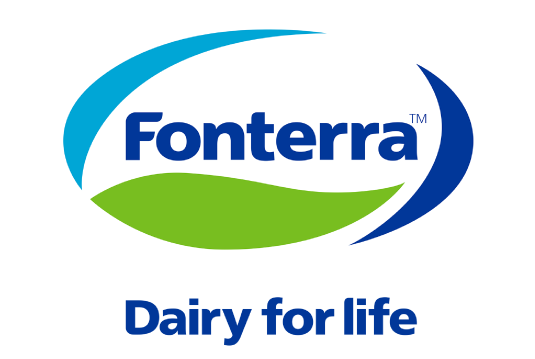We believe that advocacy and helping instill practices and structure in the industry is the best approach to create lasting change. Palm oil is used in hundreds of products by a wide range of companies. The majority of the world’s palm oil comes from South East Asia.
Products are raising concerns, because of the increasing deforestation of indigenous forest in this region, which is being converted to plantations for agriculture products, like palm oil. Concerns include environmental and social issues arising from deforestation, abuse of worker rights and the impact of those on local communities.
Our position
Fonterra supports the production of certified sustainable palm oil.
Palm oil and palm kernel oil are vegetable oils derived from palm fruit which are widely used by food manufacturers globally in an extensive range of products. Both are used by Fonterra as an ingredient in some products to enhance texture and to bond (emulsify) the ingredients, or to provide supplementary fats.
Sustainability is a priority for us, and this includes being careful about where we source our ingredients. We support the production of certified sustainable palm oil and Fonterra is a member of the Roundtable on Sustainable Palm Oil (RSPO).
We believe that advocacy and helping instil practices and structure in the industry is the best approach to create lasting change. Simply banning some agricultural products, will likely mean production will shift to other agricultural commodities, perhaps with additional risks. With another one billion people in the world by 2030, we need to transform food production to deliver sustainable nutrition. We need to make sure food production is efficient and does not drive further deforestation or environmental degradation, but in fact, helps protect and restore ecosystems.
Achieving change will help the tens of thousands of people involved in the industry as well as the environment.
Actions we’re taking
Part of our approach includes collaboration with similar-minded organisations, this includes working towards transparency of the products we use in our operations and supply chains.
We have been active in palm product (including palm oil, palm stearin, palm kernel oil and palm olein) sustainability since 2009.
- We have been a member of the Roundtable on Sustainable Palm Oil (RSPO) member since 2009. The RSPO is committed to making sustainable palm oil the norm. Fonterra Australia and New Zealand manufacturing sites that manufacture products using palm oil are RSPO Supply Chain Certified.
- In 2016 we established our own Palm Product Standard to ensure the products we use meet sustainability best practices. This standard specified that all our vendors of palm products are required to publicly commit to “No Deforestation, No Peatland Development, and No Exploitation” and have business processes in place to meet compliance. We worked with The Forest Trust (TFT) in 2016, a leading NGO supporting sustainable transformation in the palm industry, to evaluate the performance of our supply chain and compliance with our standards.
- In 2023 we replaced our Palm Product Standard with our Forest and Agriculture Products and Procurement standard to include additional forest and agriculture products and set out our no deforestation commitment across primary deforestation-linked commodities. Fonterra’s Forest and Agriculture Products and Procurement Standard defines our requirements for sourcing and procuring forest and agriculture products across all our suppliers.
- To meet our commitments, suppliers must meet the expectations outlined in both the Fonterra Supplier Sustainability Code of Practice, and the Fonterra Forest and Agriculture Products and Procurement standard. These documents outline Fonterra’s expectations related to the protection of forests and natural ecosystems (including the requirement for all our suppliers of palm products to publicly commit to “No Deforestation, No Peatland Development, and No Exploitation” and the requirement to have business processes in place to meet compliance), respect for human rights, and expectations around supplier transparency and traceability. Fonterra expects suppliers to provide transparency over the supply of forest and agriculture products, with raw materials being traceable to a point where compliance can be known, preferably point of harvest.
- Suppliers of palm products to Fonterra must be able to trace all products to mills and have time-bound plans in place and demonstrate meaningful progress towards traceability of all products to plantation, with an aim of full traceability to plantation.
- We are working to implement our Fonterra Forest and Agriculture Products and Procurement Standard, and are actively engaging with our suppliers on deforestation free supply of all forest and agriculture products, including palm products.
Fonterra provides details of palm oil sustainability performance in its Annual RSPO report available here.
Palm Kernel Expeller (PKE)
Palm Kernel Expeller is a by-product of the palm crop. Originally treated as waste, it is now used as an effective supplementary feed for animals, including dairy cows in New Zealand when there is less grass growth.
New Zealand dairy cows are primarily fed grass, with some farmers choosing to include supplementary feed such as PKE to help support cows’ nutrition.
Fonterra is committed to the elimination of deforestation across our operations and supply chains. Our focus is on influencing primary palm production through the sourcing of deforestation free and segregated palm oil which will in turn increase the availability of sustainably produced PKE.
Wilmar Policy
Wilmar mill lists
Wilmar Grievance page process updates
Agrifeeds PKE supply chain

